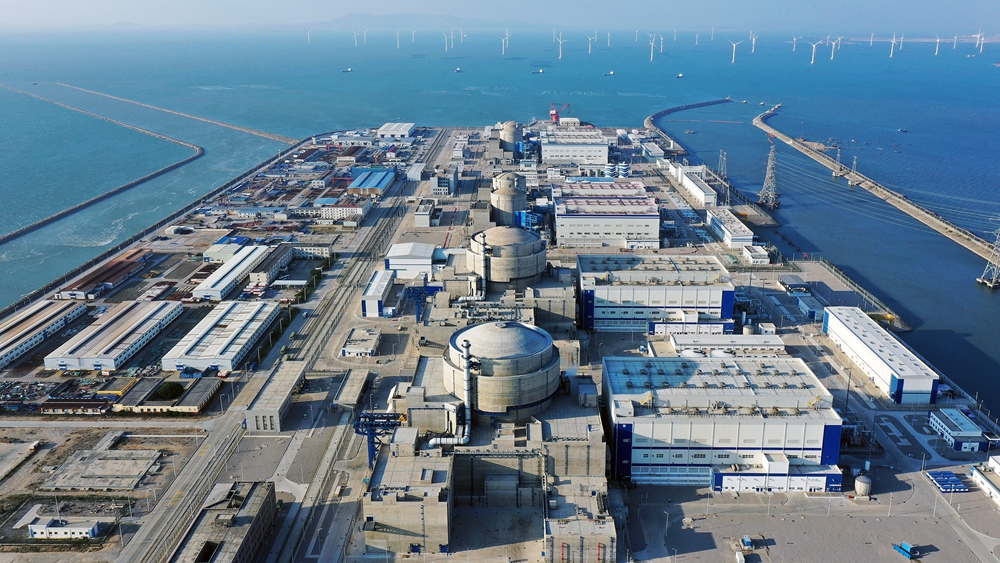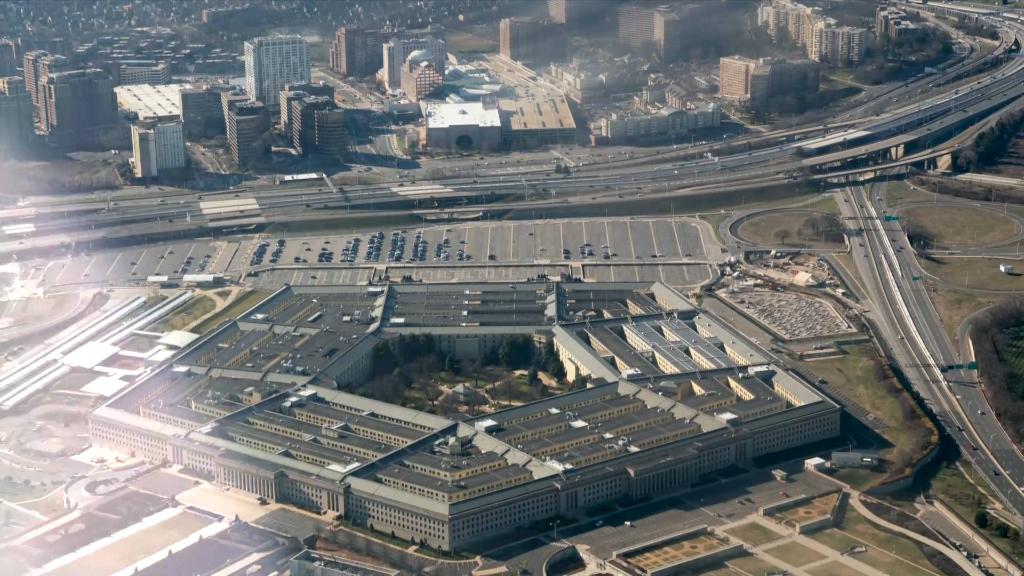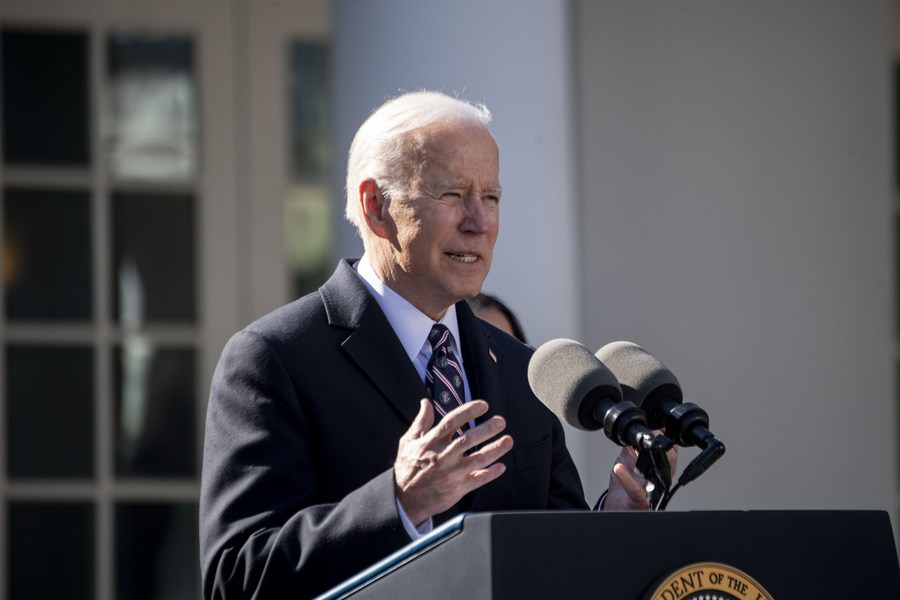
U.S. President Joe Biden speaks after signing the Emmett Till Anti-Lynching Act in the Rose Garden of the White House in Washington, D.C., the United States, on March 29, 2022. (Xinhua/Liu Jie)
"We're now in a new moment in this pandemic," President Joe Biden said. "It does not mean that COVID-19 is over."
WASHINGTON, March 30 (Xinhua) -- U.S. President Joe Biden said on Wednesday that the COVID-19 pandemic is not over before receiving his second COVID-19 booster shot.
"We're now in a new moment in this pandemic," Biden said in remarks from the White House. "It does not mean that COVID-19 is over."
The veteran Democrat and former U.S. senator representing Delaware went on to urge Congress to "secure more funding for the COVID-19 response."
"There is no wall you can build high enough to keep out a virus," he pleaded. "Congress needs to act now. Please."
The fund to cover testing and treatment for uninsured Americans ran out of money last week, leaving people to pay up to 125 U.S. dollars out of pocket for a PCR test. The funding to cover the cost of administering vaccines for those uninsured will run out next week.
Biden acknowledged his administration has had to cancel planned orders of monoclonal antibodies and cut the supply it is sending to states, and that "we'll start to run out of them by the end of May" without more funding.
He also used the speech in the afternoon to introduce the launch of COVID.gov -- a new website the White House billed as a new "one-stop shop" to help people in the United States gain better access to vaccines, tests, treatments, and masks, "as well as get the latest updates on COVID-19 in their area."
After the remarks, Biden, 79, received his second COVID-19 booster shot -- a dose of Pfizer's vaccine -- on camera. "It didn't hurt a bit," he said while fielding questions from reporters.
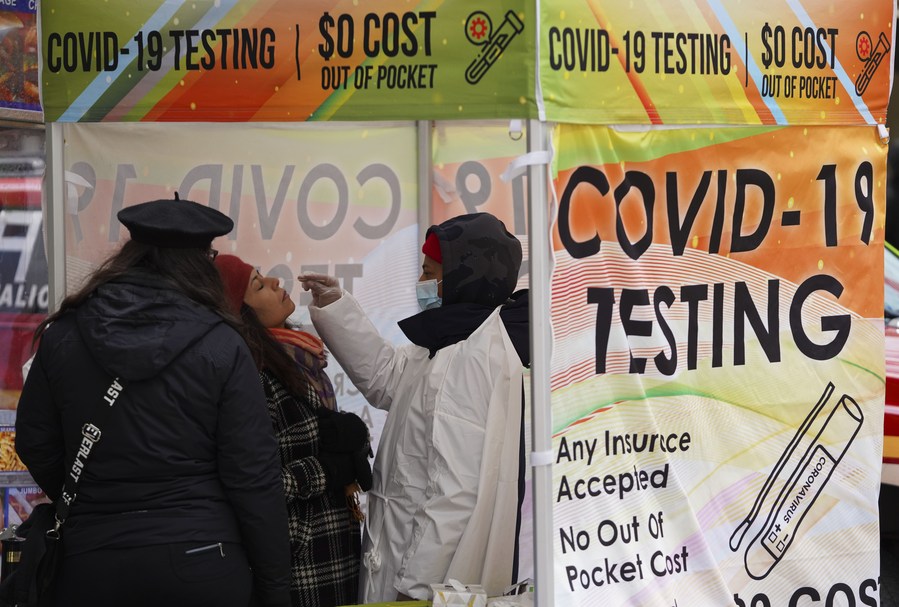
A medical worker collects a swab sample from a woman at a COVID-19 testing site in New York, the United States, March 29, 2022. (Xinhua/Wang Ying)
The U.S. Food and Drug Administration authorized this week a second COVID-19 vaccine booster shot for those aged 50 and older, at least four months after their first booster.
Biden received his first booster dose of the Pfizer vaccine on camera at the end of September.
The total number of COVID-19 cases in the United States has exceeded 80 million, with nearly 979,000 related deaths, according to the latest data from Johns Hopkins University. Both numbers are the highest in the world.
The highly contagious Omicron subvariant BA.2 is now the dominant strain of COVID-19 in the United States, causing almost 55 percent of all new infections last week, the latest data from the U.S. Centers for Disease Control and Prevention showed.
White House press secretary Jen Psaki and principal deputy press secretary Karine Jean-Pierre have recently tested positive for COVID-19 and worked remotely. Both women are vaccinated and boosted and said to be experiencing mild symptoms.
The White House said it has taken strong precautions to protect Biden from the coronavirus, including regular screening and testing of those who will come in close contact with him.
Biden is also tested semi-regularly and tested negative earlier this week.
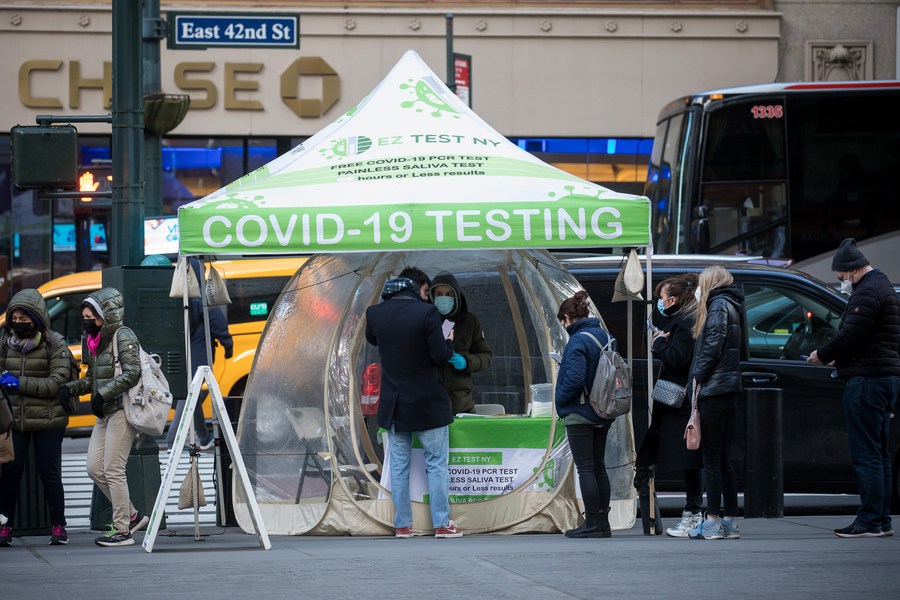
People wait in line at a COVID-19 testing site in New York, the United States, March 28, 2022. (Photo by Michael Nagle/Xinhua)
"The president's doctor determines if additional testing is needed in any given week, in light of various considerations," White House communications director Kate Bedingfield said on Tuesday. "So, more specifically to your question, because of his travel this week, he will test in addition to his regular testing cadence."
The Biden administration unveiled the federal budget request for the fiscal year 2023, in which it urged efforts and investments to prepare "for future pandemics and other biological threats."
The budget asks for "transformative investments in pandemic preparedness" across the U.S. Department of Health and Human Services -- 81.7 billion dollars available over five years -- while it includes 9.9 billion dollars to expand public health infrastructure and increase capacity for forecasting as well as analyzing future outbreaks, among other things.
The proposed funding for public health services, however, was hugely dwarfed by the amount requested for military and defense spending which totals over 813 billion dollars. Biden pitched it as "one of the largest investments in our national security in history."
American journalist and author Jill Filipovic published an opinion on CNN Tuesday, writing that she thinks it makes less sense that while the military spending is so high there are still "claims that the country can't afford robust and necessary social welfare programs." ■






